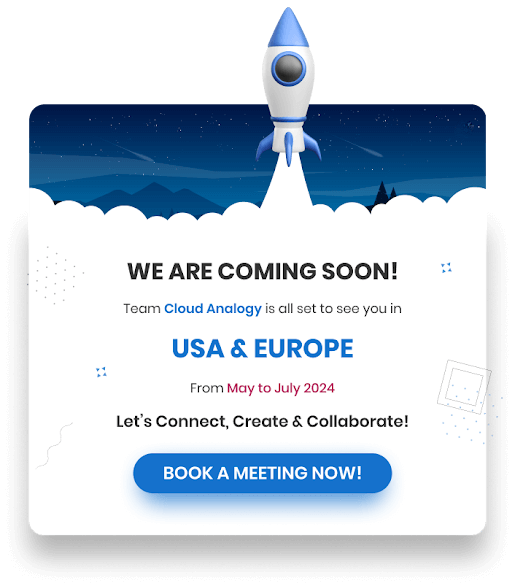Sharing is caring!
Salesforce’s Object Query Language helps you to search your organization’s Salesforce data for particular information. Like all Apex codes, Salesforce Languages are also case insensitive. However, we have a query language in Salesforce to fetch records. When you build a custom UI for Salesforce then the Salesforce Object Query Language (SOQL) and Salesforce Object Search Language (SOSL) APIs are used to search the organization’s Salesforce data.
Let us now deal with types of Salesforce Query Language.
Types Of Salesforce Query Language
- SOQL (Salesforce Object Query Language): SOQL stands for Salesforce object query language. SOQL is syntactically similar to SQL (structured query language). It enables the developer to construct simple but powerful query strings used in various environments. The developer may use SOQL to study information stored in your org’s database. They may write and execute a SOQL query in Apex code or inside the Developer Console’s query Editor. Ideally SQL is used in a situation when the developer knows the objects in which the data resides.
- SOSL (Salesforce Object Search Language): Salesforce object search Language (SOSL) is a Salesforce search language that is used to carry out text searches in records against the search index. Use SOSL to search fields throughout more than one popular and custom item data in Salesforce. SOSL is not supportive of big objects. For creating efficient SOSL queries, it is important to create filters that are selective. SOSL is used when you don’t know which object or field the data resides in.
These two languages help us to address databases, to fetch needed information.
Why Do We Need Two Query languages?
- The query has some conditions, such as table name. We aren’t doing any random table search. The whole thing needs to be honestly referred to.
- SOQL is used to fetch information based totally on a few parameters or situations. An Example to cite will be: fetch the records from a database where the state of the customer is Uttar Pradesh. The general SOQL syntax is SELECT [fields] FROM [object] [WHERE filter_expressions] [ORDER BY field_names ASC/DESC] [LIMIT N].
- SOSL is used to fetch some information from a database. An example to cite will be: We need to start writing a code through which we can view records where the word “John” is used in the database. Search queries could have textual content to search.
- A SOQL query is the equal of a select SQL statement and searches the org database. SOSL is a programmatic way of acting on a text-based search against the search index.
Next, let us explore the aggregate functions in Salesforce.
Aggregate Functions In Salesforce
Aggregate functions in Salesforce are used in a GROUP BY clause in SOQL queries to serve the purpose of generating reports for analysis. Some examples are:
- SELECT MIN(Custom Field ) FROM Custom Object
- SELECT MAX (Custom Field ) FROM Custom Object
- SELECT AVG (Custom Field ) FROM Custom Object
- SELECT SUM (Custom Field ) FROM Custom Object
Let us now highlight the differences between SOQL and SOSL.
What Are The Differences Between SOQL & SOSL?
- As the name shows, SOSL is an object search language. that will search for some phrases or words for making developers discover any record or data.
- SOSL can search for something only in phone, name, email fields. example: something present in a number, currency, or picklist we can’t search, means, if our data is present within the field of kind phone/name/email, then only we are able to do searching.
| Sl.No | SOQL | SOSL |
| 1 | SOQL (Salesforce Object Query Language ) helps to retrieve the records from the database by using the “SELECT” keyword | SOSL(Salesforce Object Search Language) retrieves the records from the database by using the “FIND” keyword. |
| 2 | SOQL allows making queries only on one object at a time. | SOSL allows making queries on many objects at a time. |
| 3 | INSERT, DELETE, and UPDATE statements aren’t supported in SOQL. | |
| 4 | Select * is not supported in SOQL. you need to explicitly choose the favored fields | |
| 5 | SOQL enables you to know in Which objects or fields the data resides. . | We don’t know in which object or field the data resides with SOSL. |
| 6 | We can retrieve data from a single object or from multiple objects related to each other. | We can retrieve multiple objects and field values efficiently even if the objects may or may not be related to each other. |
Next, we deal with Joins in Salesforce.
Joins In Salesforce
- Salesforce does not support joins, in which we can fire or call one query on a couple of objects and get data the way we can do in Oracle, SQL, etc.
- Salesforce offers a change solution for this, which is known as ‘relationship queries’. This means those items which are having relationships, must be in relation.
Some Other Facts Related To Query Language in Salesforce
DML Statements
- DML statements are known as Data Manipulation Language and are used to create or modify Salesforce records. We are able to make adjustments inside the database and dedicate the equal via the usage of statements like Insert-Update-Delete.
- DML statements are so important, that without this you can not make any modifications to data within the database.
- However, using Database queries like SOQL/SOSL, we can only fetch data. They won’t help in making changes in data.
Finally, let us find out why SOQL does not support SELECT.
Why SOQL does not support SELECT*?
The main motive is that Salesforce is a multi-tenant environment in which tens of millions of users share the same database, and also you don’t want the database server to get into an excessive amount of problems acting very complicated duties, and consequently lagging overall performance for other tenants of the server.
Conclusion
Salesforce has Object Query Language to search your organization’s Salesforce data for specific information. We use a query language in Salesforce to fetch Salesforce records. While building a custom UI for Salesforce, the Salesforce Object Query Language (SOQL) and Salesforce Object Search Language (SOSL) APIs get used for searching the organization’s Salesforce data. There are two types of Salesforce Query languages – SOQL and SOSL. A SOQL query is the equal of a select SQL statement and searches the org database, and SOSL is a programmatic way of acting on a text-based search against the search index.
When it comes to Salesforce implementation, the world trusts Cloud Analogy. Our focused approach and extensive planning assist us in developing the best Implementation technique for you to maximize ROI.








